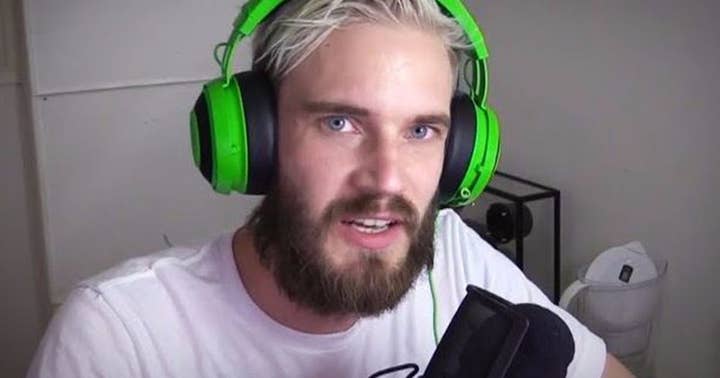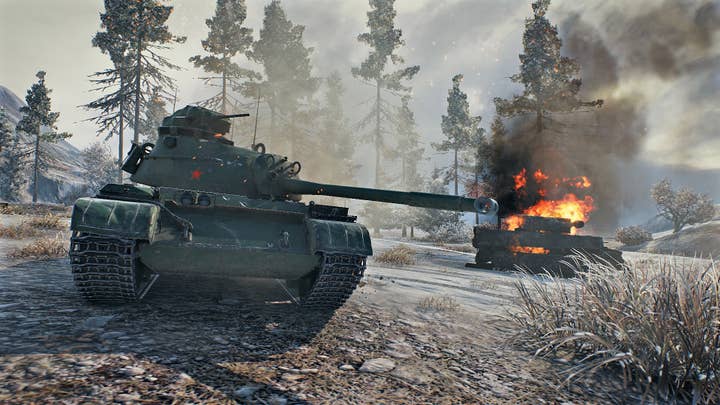Why non-gaming influencers may be the best fit for your game
Benedikt Seitz of marketing agency GameInfluencer says not all developers need to win over PewDiePie to boost sales
YouTubers and Twitch streamers; these are the animated, self-made celebrities we immediately picture when discussing influencers.
By extension, influencer marketing can easily be misread as shorthand for video-centric content, but the true potential for this slowly developing discipline goes far beyond charismatic youths with webcams.
Companies of all sizes are experimenting with advertising across every form of social media, and if that's achieved through personalities that have already established an avid audience, so much the better. But while it's easy to imagine how clothing lines can use Instagram models to showcase the latest fashions, you might not think there's much people on this platform can do to promote your game.
Marketing agency GameInfluencer has built its business around proving this to be a misconception, with Benedikt Seitz insisting that developers should look beyond the usual gaming personalities - from PewDiepie to more specialised channels - in order to reach a broader audience.

"Don't look for the right influencer, look for the right demographic," he tells GamesIndustry.biz. "Going for similar types of gaming channels is also a good start, but the most important factor is really the demographic of their viewers.
"We have seen that games, especially niche games, actually perform well on non-gaming channels. For example, when working with cooking games or titles for more female-friendly demographics, we've seen wonderful [reception] putting them on a family Instagram channel. That's because it had the right audience, and there are very few [gaming] channels who would play similar games.
"It might be the same for World of Tanks, you might want to go for some weapon channels or guys into historical warfare. Obviously, people who play similar games are a good choice, but you have to keep an open mind when doing influencer marketing and include these other channels."
It's surprising advice, to be sure. The beauty of working with established gaming channels is that not only is the host guaranteed to understand your product, but so are their viewers. While there may be some games aficionados among the audience of a cooking channel, will the host even be open to featuring your title?
"70 to 80 per cent of non-gaming influencers are open to featuring games on their channel. [But] if it doesn't fit their style or their fans, they won't touch it"
"Not every influencer is up for promoting games," Seitz admits. "That's definitely a challenge - but then not every gaming influencer will be interested in promoting your game. Speaking from experience, 70 to 80 per cent of non-gaming influencers are open to featuring games on their channel - they just have to fit the channel well, and they have to like the game. If it doesn't fit their style or their fans, they won't touch it. But if you approach with a good game, most will be open to it."
And, Seitz stresses, it's important to look beyond the obvious realm of YouTube when seeking relevant non-gaming influencers. Instagram has proven to be increasingly effective for his team's campaigns - "especially with the new Stories functionality" - while he also notes Snapchat is on the rise. Longer-running platforms like Twitter and Facebook are also key to spreading the word about your game.
Naturally, you need to adapt your strategy - not only across different platforms but also with different games.
"Let's say you have a title for core gamers," Seitz says by way of example. "You'll probably want to focus your campaign on YouTube and Twitch because that has the most targeted audience and you can go into more detail.
"On the other hand if you have a more casual game, you might do better by marketing on Instagram, where a picture or short story will be enough [to get your game across]. It really depends on the type of game you want to promote."

So how do you even find non-gaming channels that might be interested in looking at your lovingly crafted title? Once you have identified the audience you hope to target, Seitz advises looking for YouTube channels that would appeal to them. The related channels functionality on the video platform will help identify other possibilities.
When it comes to games influencers - because these can still be an effective way to reach potential customers - meeting them at conferences and other networking events is the ideal way to start building a relationship. This isn't always possible of course, but fortunately most influencers make it apparent how to contact them (via their channel's About page, for example). After all, they need content as much as developers need exposure.
"Studios need to be open to creative ideas, open to working with influencers - they're really creative people."
Seitz suggests that once a connection is established, developers try to make it a little more personal. GameInfluencer, for example, hosts a Skype call with any content creators they plan to work with in order to get to know them better and understand what type of content they prefer producing.
He also suggests being more open to working directly with them and getting them more involved. Creating an influencer-branded game, or even just in-game content based on them, is the most obvious example but the possibilities are endless.
"Developers should be more open for creative influencer concepts," Seitz says. "With one campaign, we [orchestrated] a clan war between influencers and the developer introduced a new function just to help enable this. That worked really well.
"I would say most game developers are reluctant to do this sort of stuff. Studios need to be open to creative ideas, open to working with influencers - they're really creative people."
However, it's important to clarify the relationship between your studio and the influencers you work with - no matter how involved they become.
"Influencer marketing is still a relatively young field. But there has been a huge amount of progress, things are getting more and more professional"
"The big platforms have already reacted to this - content creators can just mark videos that contain sponsored content," Seitz explains. "That can be done on Facebook, Instagram, YouTube and so on. We also advise our YouTubers to state verbally that they are producing content for [developers] - that way you're covered on the legal side."
Examples of games firms and influencers failing to transparently declare their collaborations are plentiful, and the consequences more apparent - with the run-in between PewDiePie, Warner Bros and the Federal Trade Commission perhaps the most famous example.
However, it is PewDiePie's more recent controversies that have identified a potential stumbling block for influencer marketing. With seemingly no barriers preventing these personalities from posting offensive and outrageous content, developers may be understandably reluctant to work with event the most influential content creators.
But Seitz assures us that more and more people from this world are being increasingly careful with their content.

"Influencer marketing is still a relatively young field," he explains. "At the start, everyone did what they pleased. But there has been a huge amount of progress, things are getting more and more professional - certainly on the agency side, but not always on the influencer side.
"That's what I think we're seeing right now is influencers becoming more and more professional, learning from the backlash that they can't just do what they want if they command a huge following, that they have to be careful about what they're saying. They can't just say the 'n word', they can't show dead bodies - it just shouldn't happen. I think influencers will be way more careful in future."
Most importantly, he doesn't believe the recent fall from grace when it comes to the likes of PewDiePie and Logan Paul will ultimately have much impact on the evolution of influencer marketing. It's worth developers getting to grips with the concept now, what works and what doesn't, because it will become more and more relevant in the years to come.
"People will always watch influencers in some shape or form," he says. "What I predict is we'll see a change in platforms - I'm not sure if YouTube will still be around in five years or so. That might change. We've seen that Facebook, in terms of influencer marketing, is already on the decline. So it still makes sense to use Facebook in some cases but it has lost some of its [impact].
"So we will see some platform changes, but no matter what the platform, there will always be some form of influencer marketing."
